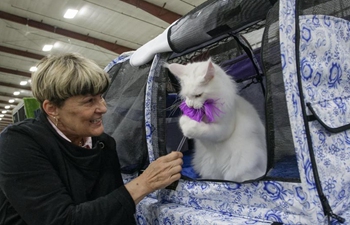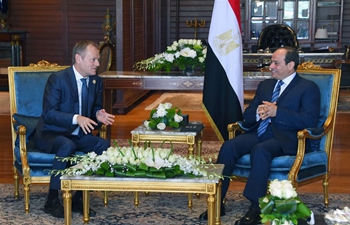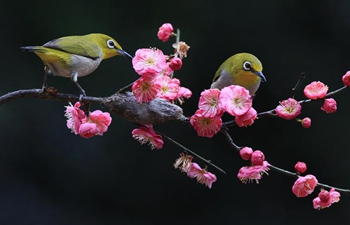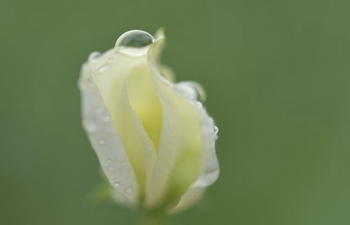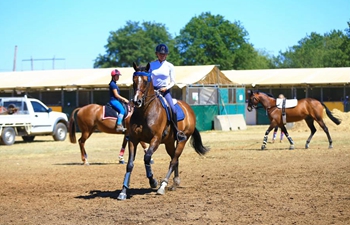CHICAGO, Feb. 25 (Xinhua) -- When Kalahari meerkat mothers feel stressed, they can alter the growth and behavior in their daughters in such a way that benefits the mothers at their children's expense, according to a study posted on the website of the University of Michigan (UM) Monday.
For the study, UM researchers observed seven meerkat groups that produced 26 litters across three years. Some pregnant mothers were given cortisol, which didn't affect the pups' survival rates.
Tracking the pups' weight and behavior, they found the daughters whose mothers were treated with cortisol grew slowly, but were more willing to help raise other pups produced by their mother in the future.
Fathers can't nurse the pups, but they do "babysit" and feed offspring. These males did not have any role in the effects observed by the researchers who only treated the mothers.
Contrary to most studies that focus on positive impact of mothers on their offspring, this study highlighted that stressed mothers could affect offspring in such a way that primarily benefits the mothers by increasing the likelihood that the offspring stick around to help care for their future siblings.
"Because early life growth or body mass in daughters is a major determinant of their future reproductive potential, our results highlight that early life stress should reduce the future reproductive success of daughters," said Ben Dantzer, assistant professor of psychology and ecology and evolutionary biology at UM and the study's lead author.
Maternal characteristics can have a profound influence on offspring, which are referred to as maternal effects.
Many studies involving humans show that early life adversity, such as abuse or maternal stress, has long-term consequences on offspring.
The study has been published in the journal Philosophical Transactions of the Royal Society B.

